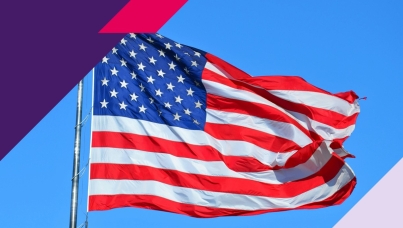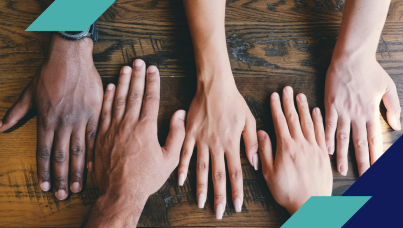Most Americans are aware of the 988 Suicide & Crisis Lifeline, but familiarity remains low
Washington, D.C., July 13, 2023 – Nearly one year since the 988 Suicide & Crisis Lifeline became available nationwide, a new NAMI/Ipsos poll finds that while most Americans are aware of the Lifeline, familiarity with it remains low. Despite a significant increase in awareness of the 988 Suicide & Crisis Lifeline since September 2022, just under one-fifth of Americans say they are somewhat or strongly familiar with it, essentially unchanged from last fall. When asked about key facts about the Lifeline, most Americans are uninformed about what the Lifeline does or how it can help people in crisis. When it comes to funding the 988 Suicide & Crisis Lifeline, about half of Americans say federal funding is the best way to do it, and another half say that Congress should highly prioritize funding the Lifeline.
For more information about this study, please click here.

Detailed Findings
1. Most Americans are aware of the 988 Suicide & Crisis Lifeline, but few say they are familiar with it. When asked about the details of the Lifeline, the majority say they do not know what happens when you call 988 for yourself or a loved one.
- Three-fifths (63%) of Americans say they are aware of the 988 Suicide & Crisis Lifeline, up 19 percentage points since September 2022 and 41 points since May 2022.
- However, just under one-fifth (17%) of Americans say they are very or somewhat familiar with the Lifeline, essentially unchanged from September 2022 (14%).
- Americans ages 18-29 are more likely than those ages 30+ to say they are familiar with the 988 Suicide & Crisis Lifeline. Similarly, LGBTQ+ Americans are twice as likely to say they are very or somewhat familiar with the 988 Suicide & Crisis Lifeline than non-LGBTQ+ Americans (33% vs. 15%, respectively).
- Overall, when presented with a short series of questions testing their knowledge about the Lifeline, most Americans say "don't know" or are unable to give a correct answer.
- For example, roughly four in five do not know or are wrong about whether calling 988 always leads to an in-person response, requires individuals to disclose personal information, or always sends someone in crisis to the hospital.
2. The public’s lack of familiarity with the 988 Suicide & Crisis Lifeline lends itself to a trust gap.
- Just one in five (22%) Americans say they have a great deal of trust that they would receive the help they need if they called the 988 Suicide & Crisis Lifeline, compared to 43% who say the same about calling the 911 emergency number.
- Regardless, nearly three in five (58%) say they somewhat trust that they would receive the help needed if they called the Lifeline.
- Black Americans are more likely than white and Hispanic Americans to say they have a great deal of trust or somewhat trust that they would get the help needed if they called the 988 Suicide & Crisis Lifeline (87% vs. 80% and 78%, respectively).
3. A vast majority of Americans are not content with the status of mental health treatment in the U.S., and most say Congress should highly prioritize funding mental health care. More specifically, half say Congress should highly prioritize funding the 988 Suicide & Crisis Lifeline.
- Three quarters (76%) of Americans say they are not content with the status of mental health treatment in the country.
- While sixty-two percent say Congress should highly prioritize funding mental health care in the U.S., another half say Congress should highly prioritize funding the 988 Suicide & Crisis Lifeline in particular.
- Black Americans are nearly twice as likely as white Americans to say that mental health care should be the highest priority for federal funding (42% vs. 23%, respectively). Hispanic Americans fall in the middle (33%).
- Americans are open to a combination of funding methods for the 988 Suicide & Crisis Lifeline, but federal funding is seen as the best way by most Americans (52%), followed by state funding (44%) and fees on monthly phone bills (38%).
- While Republicans are less likely to say they support the various ways to fund the 988 Suicide & Crisis Lifeline than Democrats or independents, Republicans are most likely to say federal funding (38%) and state funding (34%) are the best ways to fund the 988 Suicide & Crisis Lifeline.
About the Study
This NAMI/Ipsos poll was conducted June 2 – 11, 2023, by Ipsos using the probability-based KnowledgePanel®. This poll is based on a nationally representative probability sample of 2,073 general population adults age 18 or older.
The topline is trended with three surveys. The first survey was conducted October 22-25, 2021, the second was conducted May 20-23, 2022, and the third was conducted September 23-26, 2022, all for NAMI by Ipsos. The October 2021 survey was based on a nationally representative probability sample of adults age 18 or older (N=2,049). The May 2022 survey was conducted based on a nationally representative probability sample of adults age 18 or older (N=2,045). The September 2022 survey was conducted on a nationally representative probability sample of adults age 18 or older (N=3,071). Further information about the October 2021 survey can be found here. Further information about the May 2022 survey can be found here. Further information about the September 2022 survey can be found here.
The margin of sampling error for this study is plus or minus 2.3 percentage points at the 95% confidence level, for results based on the entire sample of adults. The margin of sampling error takes into account the design effect, which was 1.10. The margin of sampling error is higher and varies for results based on other sub-samples. In our reporting of the findings, percentage points are rounded off to the nearest whole number. As a result, percentages in a given table column may total slightly higher or lower than 100%. In questions that permit multiple responses, columns may total substantially more than 100%, depending on the number of different responses offered by each respondent.
The survey was conducted using KnowledgePanel, the largest and most well-established online probability-based panel that is representative of the adult US population. Our recruitment process employs a scientifically developed addressed-based sampling methodology using the latest Delivery Sequence File of the USPS – a database with full coverage of all delivery points in the US. Households invited to join the panel are randomly selected from all available households in the U.S. Persons in the sampled households are invited to join and participate in the panel. Those selected who do not already have internet access are provided a tablet and internet connection at no cost to the panel member. Those who join the panel and who are selected to participate in a survey are sent a unique password-protected log-in used to complete surveys online. As a result of our recruitment and sampling methodologies, samples from KnowledgePanel cover all households regardless of their phone or internet status and findings can be reported with a margin of sampling error and projected to the general population.
The data for the total sample were weighted to adjust for gender by age, race/ethnicity, education, Census region, metropolitan status, and household income. The demographic benchmarks came from the 2022 March Supplement of the Current Population Survey (CPS).
- Gender (Male, Female) by Age (18–29, 30–44, 45-59 and 60+)
- Race/Hispanic Ethnicity (White Non-Hispanic, Black Non-Hispanic, Other, Non-Hispanic, Hispanic, 2+ Races, Non-Hispanic)
- Education (Less than High School, High School, Some College, Bachelor or higher)
- Census Region (Northeast, Midwest, South, West)
- Metropolitan status (Metro, non-Metro)
- Household Income (Under $25,000, $25,000-$49,999, $50,000-$74,999, $75,000-$99,999, $100,000-$149,999, $150,000+)
About Ipsos
Ipsos is one of the largest market research and polling companies globally, operating in 90 markets and employing over 18,000 people.
Our passionately curious research professionals, analysts and scientists have built unique multi-specialist capabilities that provide true understanding and powerful insights into the actions, opinions and motivations of citizens, consumers, patients, customers or employees. Our 75 solutions are based on primary data from our surveys, social media monitoring, and qualitative or observational techniques.
Our tagline "Game Changers" sums up our ambition to help our 5,000 customers move confidently through a rapidly changing world.
Founded in France in 1975, Ipsos has been listed on the Euronext Paris since July 1, 1999. The company is part of the SBF 120 and Mid-60 indices and is eligible for the Deferred Settlement Service (SRD).ISIN code FR0000073298, Reuters ISOS.PA, Bloomberg IPS:FP www.ipsos.com



